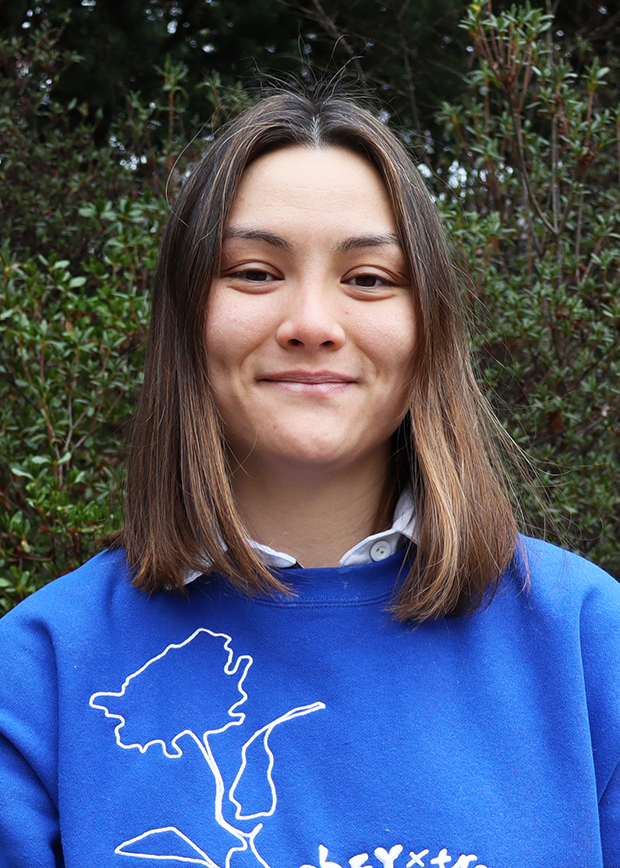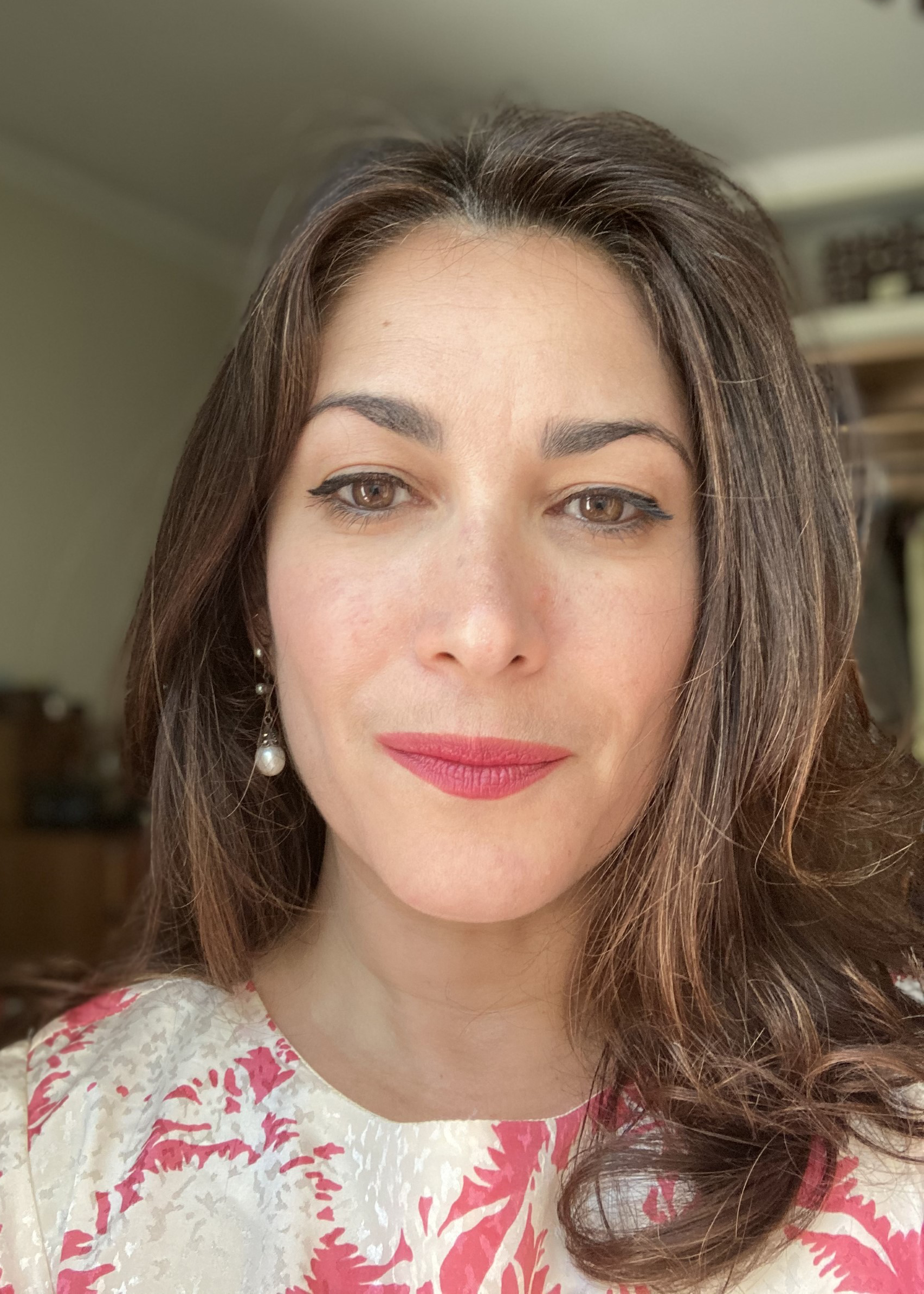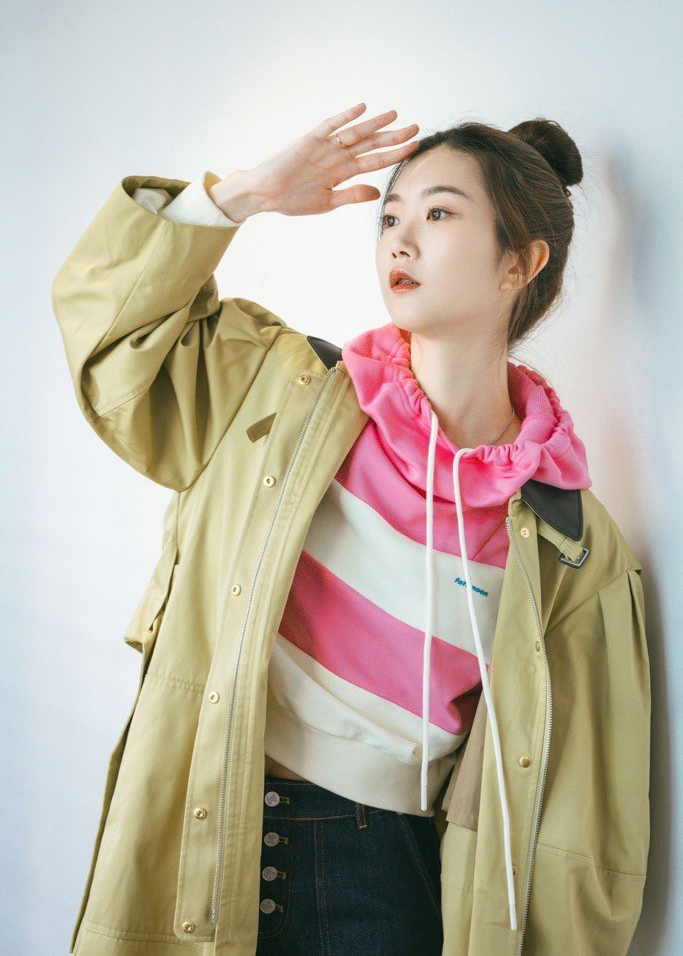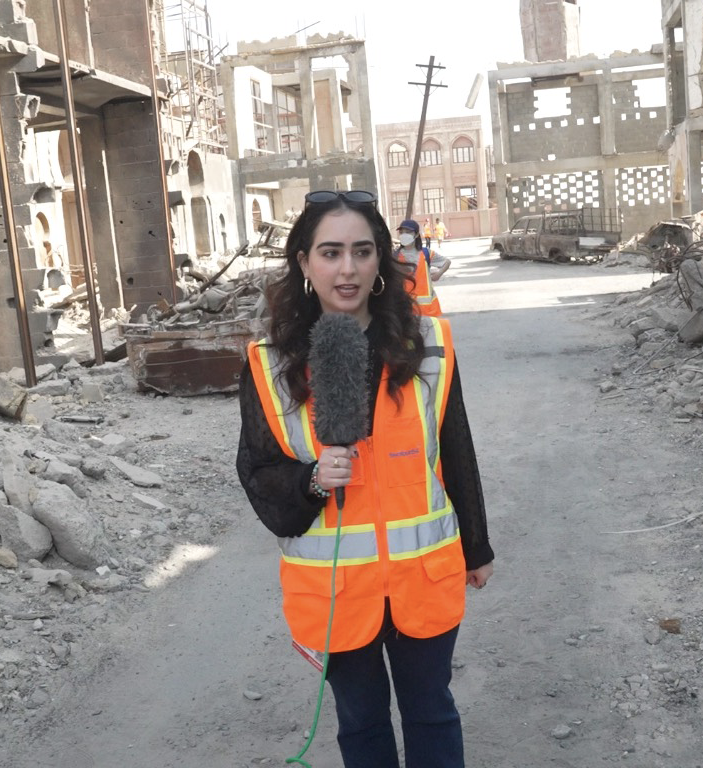Samantha Bruin

A version of this interview originally appeared on the alumni UBC website, April 2014.
Why did you choose your program at UBC and what did you enjoy most about it?
I originally wanted to major in History and English Literature—I had always loved reading and writing, so English Lit was a natural choice for me. In first year I took intro psychology and was hooked! I ended up finishing with a double major in English Literature and Psychology. I loved the many course options I had in Arts—I took some political science courses and got the opportunity to take “ASIC 200 – Global Issues in the Arts and Sciences” the first year it was offered.
What were some of your most meaningful experiences at UBC?
I have two memories that come to mind. First is participating in Day of the Longboat with friends. Paddling on the cold water at Jericho was just exhilarating! A second amazing memory is when I ran as a torchbearer in the 2010 Paralympic Torch Relay on campus, an opportunity I received as a result of my position as News Editor of The Ubyssey student newspaper. I got to pass the torch to George Hungerford, a Canadian Olympic gold medalist in Rowing.
What choices did you make at UBC that contributed to your career success / journey?
I made the decision in first year to volunteer at The Ubyssey. I managed to get amazing experience and make a bunch of friends that I hang out with on a regular basis today. This choice stemmed from my choice to make my university experience extend beyond the classroom—I participated in campus activities like Day of the Longboat and Storm the Wall, and even lived on campus for a few years.
What was your first job after graduation and what other jobs did you have before your current position?
My first job after graduation was a Receptionist/Administrative Assistant for the CIHR Canadian HIV Trials Network (CTN), a federally funded clinical trials network based in Vancouver, BC, that facilitates clinical trials for HIV and related co-infections. This job led to an opportunity to work as Communications and Administrative Coordinator for the Centre for Health Evaluation and Outcome Sciences (CHÉOS), an interdisciplinary research collective based at St. Paul’s Hospital. I held that job for five years before moving on to my current role at UBC.
Is your current career path as you originally intended? What challenges did you face in launching your career?
I never expected to have the career path I did, but at the same time, I kept an open mind about job opportunities and tried not to box myself in. One of the challenges I ran into was knowing what jobs I qualified for when I was looking for new opportunities—the job market is really competitive and employers often have a certain set of skills in mind that a job description doesn’t always outline.
What was your “aha” moment?
My “aha” moment came when I was in my last year at UBC. I had gone through my entire life thinking that my “career” had to have a prestigious, package-able, one-word title that “put my education to good use”—which was why I had focused all of my efforts on becoming a journalist. I was finding that despite having good work experience, it was extremely difficult to break into the journalism industry, and I was becoming discouraged. Moreover, I was taking a few Political Science classes, and as a result, I was strongly regretting my choice to major in English Literature and Psychology. I was feeling frustrated with my life choices up to that point.
That’s when I had my “aha” moment! I realized that your job can be anything you want it to be, and that a variety of skills and work experience can lead to a variety of positions at various companies if you know how to apply yourself. It was so freeing to realize this. Now, when contemplating my future, I open myself up to different possibilities. In addition, I keep my eye out for networking opportunities—no matter what industry the other person comes from.
What do you like about your current job and what do you find challenging? How does it relate to your degree?
The team I work with is extremely supportive. We find ways to connect outside of work, whether it’s volunteering together, doing yoga at lunchtime, or eating together. Working as a health care communicator allows me to stay on the pulse of changing trends in health care and society, and I work with the public regularly, so that keeps things relevant and interesting. Juggling multiple priorities and project deadlines can be challenging, though! I use the analytical, research, and writing skills I learned in my degree on a daily basis.
What was the best advice that you received?
The best advice I have received was from my mom when I was young. In high school I used to worry a lot, had trouble making decisions, and I had tunnel vision when it came to assignments and projects. My mom told me two things: first, that making a pros-and-cons list was extremely helpful in making decisions; second, that sometimes thinking outside the box was essential in completing activities and interpreting instructions. Now, I always make a pros-and-cons list and remember her advice to think differently when I am stuck on something. Thanks Mom!
What advice would you give to students and alumni interested in breaking into your industry?
Get some experience outside of the classroom. Try volunteering or participating in the work-learn or co-op program. Teach yourself something new, like Adobe Illustrator or Photoshop, or take a free class that gives you an intro. Also, stay up to date on sectors/organizations that you want to work in.
Samantha Bruin



A version of this interview originally appeared on the alumni UBC website, April 2014.
Why did you choose your program at UBC and what did you enjoy most about it?
I originally wanted to major in History and English Literature—I had always loved reading and writing, so English Lit was a natural choice for me. In first year I took intro psychology and was hooked! I ended up finishing with a double major in English Literature and Psychology. I loved the many course options I had in Arts—I took some political science courses and got the opportunity to take “ASIC 200 – Global Issues in the Arts and Sciences” the first year it was offered.
What were some of your most meaningful experiences at UBC?
I have two memories that come to mind. First is participating in Day of the Longboat with friends. Paddling on the cold water at Jericho was just exhilarating! A second amazing memory is when I ran as a torchbearer in the 2010 Paralympic Torch Relay on campus, an opportunity I received as a result of my position as News Editor of The Ubyssey student newspaper. I got to pass the torch to George Hungerford, a Canadian Olympic gold medalist in Rowing.
What choices did you make at UBC that contributed to your career success / journey?
I made the decision in first year to volunteer at The Ubyssey. I managed to get amazing experience and make a bunch of friends that I hang out with on a regular basis today. This choice stemmed from my choice to make my university experience extend beyond the classroom—I participated in campus activities like Day of the Longboat and Storm the Wall, and even lived on campus for a few years.
What was your first job after graduation and what other jobs did you have before your current position?
My first job after graduation was a Receptionist/Administrative Assistant for the CIHR Canadian HIV Trials Network (CTN), a federally funded clinical trials network based in Vancouver, BC, that facilitates clinical trials for HIV and related co-infections. This job led to an opportunity to work as Communications and Administrative Coordinator for the Centre for Health Evaluation and Outcome Sciences (CHÉOS), an interdisciplinary research collective based at St. Paul’s Hospital. I held that job for five years before moving on to my current role at UBC.
Is your current career path as you originally intended? What challenges did you face in launching your career?
I never expected to have the career path I did, but at the same time, I kept an open mind about job opportunities and tried not to box myself in. One of the challenges I ran into was knowing what jobs I qualified for when I was looking for new opportunities—the job market is really competitive and employers often have a certain set of skills in mind that a job description doesn’t always outline.
What was your “aha” moment?
My “aha” moment came when I was in my last year at UBC. I had gone through my entire life thinking that my “career” had to have a prestigious, package-able, one-word title that “put my education to good use”—which was why I had focused all of my efforts on becoming a journalist. I was finding that despite having good work experience, it was extremely difficult to break into the journalism industry, and I was becoming discouraged. Moreover, I was taking a few Political Science classes, and as a result, I was strongly regretting my choice to major in English Literature and Psychology. I was feeling frustrated with my life choices up to that point.
That’s when I had my “aha” moment! I realized that your job can be anything you want it to be, and that a variety of skills and work experience can lead to a variety of positions at various companies if you know how to apply yourself. It was so freeing to realize this. Now, when contemplating my future, I open myself up to different possibilities. In addition, I keep my eye out for networking opportunities—no matter what industry the other person comes from.
What do you like about your current job and what do you find challenging? How does it relate to your degree?
The team I work with is extremely supportive. We find ways to connect outside of work, whether it’s volunteering together, doing yoga at lunchtime, or eating together. Working as a health care communicator allows me to stay on the pulse of changing trends in health care and society, and I work with the public regularly, so that keeps things relevant and interesting. Juggling multiple priorities and project deadlines can be challenging, though! I use the analytical, research, and writing skills I learned in my degree on a daily basis.
What was the best advice that you received?
The best advice I have received was from my mom when I was young. In high school I used to worry a lot, had trouble making decisions, and I had tunnel vision when it came to assignments and projects. My mom told me two things: first, that making a pros-and-cons list was extremely helpful in making decisions; second, that sometimes thinking outside the box was essential in completing activities and interpreting instructions. Now, I always make a pros-and-cons list and remember her advice to think differently when I am stuck on something. Thanks Mom!
What advice would you give to students and alumni interested in breaking into your industry?
Get some experience outside of the classroom. Try volunteering or participating in the work-learn or co-op program. Teach yourself something new, like Adobe Illustrator or Photoshop, or take a free class that gives you an intro. Also, stay up to date on sectors/organizations that you want to work in.



